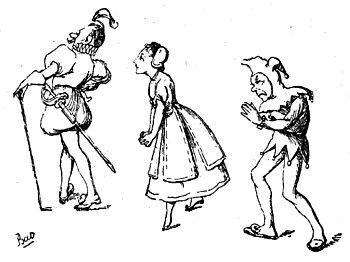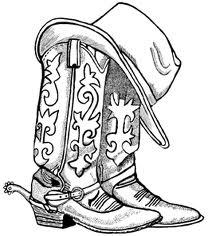
If you want to make Medieval, Renaissance or even characters from the age of Mozart believable, you have to be like a tightrope walker. Characters who say "thee" and "thou" can't say also say "you" in the next sentence. Here is part of a poem by Geoffrey Chaucer, born in 1340, who wrote in Middle English.
Book Of The Duchesse
I have gret wonder, be this lighte,How that I live, for day ne nighteI may nat slepe wel nigh noght,I have so many an ydel thoghtPurely for defaute of slepeThat, by my trouthe, I take no kepeOf no-thing, how hit cometh or goth,Ne me nis no-thing leef nor loth.Al is y-liche good to me --Ioye or sorowe, wherso hyt be --For I have feling in no-thinge,But, as it were, a mased thing,Alway in point to falle a-doun;For sorwful imaginaciounIs alway hoolly in my minde.And wel ye wite, agaynes kyndeHit were to liven in this wyse;For nature wolde nat suffyseTo noon erthely creature...
If you read it, you can follow along, for the most part. If you get too accurate with Medieval, Shakespearean or 17th, 18th or even 19th Century language, you can confuse your readers. The first of two authors who handled Medieval/Renaissance dialog well is Mark Twain with A Connecticut Yankee in King Arthur's Court and his less known Personal Recollections of Joan of Arc. W.S. Gilbert of Gilbert and Sullivan fame also wrote fantastic Renaissance era dialog in the operetta, Yeomen of the Guard which opened in 1888.
Here is a sample of W.S. Gilbert's writing. This is when the heroine, Elsie Maynard meets the Lieutenant of the Guard at the Tower of London.
ELSIE
May it please you, sir, we are two strolling players,Jack Point and I, Elsie Maynard, at your worship'sservice. We go from fair to fair, singing,
and dancing, and playing brief interludes;
and so we make a poor living.
LIEUT.
You two, eh? Are ye man and wife?POINT
No, sir; for though I'm a fool, there is a limit to myfolly. Her mother, old Bridget Maynard, travels withus (for Elsie is a good girl), but the old woman is a-bed with fever, and we have come here to pick up somesilver to buy an electuary for her.LIEUT.
Hark ye, my girl! Your mother is ill?
When I think of 19th Century characters, I immediately think of Cowboys. Want advice on well written Cowboy dialogue? Here is a link to the blog, Cowboy Kisses: http://cowboykisses.blogspot.com/2012/04/cowboy-speak-slang-and-jargon.html
What it boils down to is: when you imagine your characters talking, do you feel comfortable? If you feel uncomfortable, you need to do more research.
